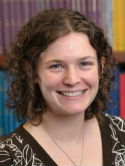Machine learning on genome-wide association studies to predict the risk of radiation-associated contralateral breast cancer in the WECARE Study Journal Article
| Authors: | Lee, S.; Liang, X.; Woods, M.; Reiner, A. S.; Concannon, P.; Bernstein, L.; Lynch, C. F.; Boice, J. D.; Deasy, J. O.; Bernstein, J. L.; Oh, J. H. |
| Article Title: | Machine learning on genome-wide association studies to predict the risk of radiation-associated contralateral breast cancer in the WECARE Study |
| Abstract: | The purpose of this study was to identify germline single nucleotide polymorphisms (SNPs) that optimally predict radiation-associated contralateral breast cancer (RCBC) and to provide new biological insights into the carcinogenic process. Fifty-two women with contralateral breast cancer and 153 women with unilateral breast cancer were identified within the Women’s Environmental Cancer and Radiation Epidemiology (WECARE) Study who were at increased risk of RCBC because they were ≤ 40 years of age at first diagnosis of breast cancer and received a scatter radiation dose > 1 Gy to the contralateral breast. A previously reported algorithm, preconditioned random forest regression, was applied to predict the risk of developing RCBC. The resulting model produced an area under the curve (AUC) of 0.62 (p = 0.04) on hold-out validation data. The biological analysis identified the cyclic AMP-mediated signaling and Ephrin-A as significant biological correlates, which were previously shown to influence cell survival after radiation in an ATM-dependent manner. The key connected genes and proteins that are identified in this analysis were previously identified as relevant to breast cancer, radiation response, or both. In summary, machine learning/bioinformatics methods applied to genome-wide genotyping data have great potential to reveal plausible biological correlates associated with the risk of RCBC. © 2020 Lee et al. This is an open access article distributed under the terms of the Creative Commons Attribution License, which permits unrestricted use, distribution, and reproduction in any medium, provided the original author and source are credited. |
| Keywords: | adult; young adult; major clinical study; single nucleotide polymorphism; cancer risk; breast cancer; genome-wide association study; risk assessment; radiation hazard; radiation induced neoplasm; machine learning; human; female; article |
| Journal Title: | PLoS ONE |
| Volume: | 15 |
| Issue: | 2 |
| ISSN: | 1932-6203 |
| Publisher: | Public Library of Science |
| Date Published: | 2020-02-27 |
| Start Page: | e0226157 |
| Language: | English |
| DOI: | 10.1371/journal.pone.0226157 |
| PUBMED: | 32106268 |
| PROVIDER: | scopus |
| PMCID: | PMC7046218 |
| DOI/URL: | |
| Notes: | Article -- Export Date: 1 April 2020 -- Source: Scopus |
Altmetric
Citation Impact
BMJ Impact Analytics
Related MSK Work










